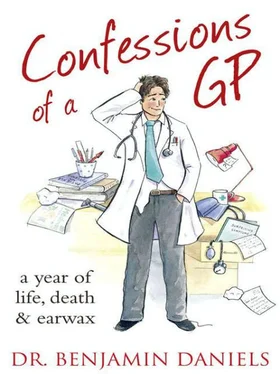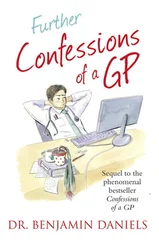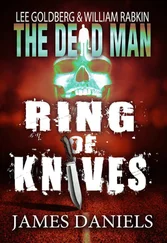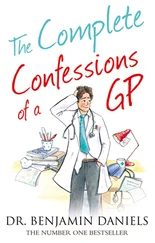Rob is a GP with a similar amount of experience to me. The week before we arrived in Mozambique, a woman came to the hospital in the middle of the night in labour with an arm presentation. This means that the baby’s arm had been born but the rest of the baby was still inside the womb and basically stuck. Rob, like me, had spent a few weeks on an obstetrics attachment as a medical student but that was pretty much the sum of his experience of delivering babies. Suddenly, as the only doctor around and ten hours from the next nearest hospital, Rob had to do something. The woman needed a Caesarean section, but there simply weren’t the facilities at hand. He tried desperately to push the arm back in and deliver the baby but to no avail and the baby died. The mum was extremely weak from loss of blood and exhaustion. The baby needed to be taken out or the mum would die too. Rob cut off the baby’s arm and managed to deliver the remainder of the dead baby.
Rob saved that woman’s life and I have the utmost respect for him. If he had decided to stay in England, that woman would have undoubtedly died. Throughout this book I’ve moaned a bit about the fact that I went to medical school to save lives and make a difference but instead I keep lonely old ladies company and dish out sick notes to the work shy. I haven’t ruled out the possibility of returning to Africa to practise some genuine ‘life-saving’ medicine, but right now I’m not sure that I have the emotional strength to hack the arm off a dead baby at three in the morning.
I was being dragged round town on a Sunday morning and, despite the fact that I really fancied a coffee and some cake, my wife wanted us to try out one of the new trendy juice bars that had sprung up. The man behind the counter had a silly pointy goatee and a ponytail. I asked him what a acai berry was given that it was going to make up one-fifth of my five berry smoothie. ‘It’s hand picked from the shores of the Amazon, man.’ (I doubted this.) ‘It’s got 100 times the vitamin C of an orange so a real natural high. You’ll be feeling great all morning and it’ll keep those colds at bay.’ He looked really pleased with himself as he handed me my smoothie and I wondered what other nonsensical medical advice he gave out to his customers. ‘Eat a papaya and cure your verruca.’ ‘Eat some raspberries and your friends will like you more.’ I was desperate to tell Mr Goatee Man that there was no evidence to suggest that eating excess vitamin C was of any benefit in keeping colds away and that it wouldn’t give me a ‘boost’, why would it? Added to this was the fact that if I received any more than 200mg of vitamin C, I’d simply shit and piss out the excess so might as well stick to an orange, which was much tastier and cheaper. My wife knows me too well and gave me a look that meant stay quiet and don’t embarrass her in public. I took my smoothie and sat down. Irritatingly, it was really nice and made me feel quite revitalised.
Mr Goatee Man and his smoothie are part of a growing trend of advertising and marketing of ‘healthy products’ with huge claims about medical benefits without any evidence to back them up. This might seem like a typical rant from a closed-minded doctor, but I genuinely have nothing against my patients taking many herbal remedies and dietary supplements. Many of our medicines originate from plants so perhaps some of them may have genuine medical properties. Saint John’s wort, for example, is shown in clinical trials to be effective in the treatment of depression. What I object to is health food companies playing on people’s fears and anxieties with regard to their health by making unproven medical claims to sell their excessively expensive products.
Doctors work by the rules of something called ‘evidence-based medicine’. The principle of this is that if I want to prescribe you something, it should be of proven benefit. In the past doctors gave out all sorts of tonics and pills based on guesswork and trial and error. I’m sure some of these medications were effective and helpful, but many would have been no better than a placebo. Nowadays we are supposed to apply some evidence to everything we prescribe. If you come to see me with high blood pressure, I can think of 10–20 different pills I can start you on. As the patient you need to put your faith in me giving you the most effective pill for your condition. I can make a decision based on my own experiences over the years after having tried a few different pills on a few different patients. Or I can make my decision founded on a trial of over 10,000 people with high blood pressure that looked with minimal bias at which drug or combination of drugs seemed to reduce blood pressure most effectively and with the fewest side effects. These studies are by no means perfect and as an individual you may not respond in the same way that the majority of people did in the study. However, isn’t that a more accurate way of deciding your medication than by me choosing which tablet I most like the name of, or which medicine has the prettiest drug rep who takes me out for lunch most often?
Soon after my smoothie, I was stopped in a shopping mall by a guy selling eucalyptus cream for diabetics.
‘How does this work?’ I ask.
‘Well, mate, you know diabetics, yeah? They have bad circulation to their feet and get foot ulcers.’ (I can’t fault him so far.) ‘Well, when you rub this cream into the foot, it improves the blood flow to the skin.’
‘Rubbing anything into your feet increases the blood flow.’
‘Well, the eucalyptus cream increases oxygen production in the soft tissues.’
‘How does it do that?’
‘Free radicals and that.’
‘Have you got any evidence to show that this works any better than, say, rubbing lard into your feet?’
Mr Eucalyptus Cream Man shows me the back of his jar of cream. It says, ‘Formulated specifically with diabetics in mind.’
‘That’s not really evidence, is it?’
‘Is it you who is diabetic?’
‘No.’
‘Someone in your family?’
‘No.’
‘Are you going to buy some of this cream, then?’
‘Absolutely no.’
‘Well, piss off and stop wasting my time. I’m trying to make a living here.’
Really, I’m just as guilty as Mr Eucalyptus Cream Man. Mr Dudd came to see me recently with a bad back. His back aches because, like him, it is 90 years old. The vertebrae are crumbling and his spine has no flexibility any more. He has tried codeine but this makes him constipated and drowsy and I’m reluctant to prescribe him anti-inflammatory tablets because these could give him a stomach ulcer and damage his kidneys. I decide to give him an anti-inflammatory gel to rub on to his back. There isn’t really any evidence that this is more effective for back pain than rubbing lard onto his back. I still prescribe it because I don’t want to say, ‘Sorry, Mr Dudd, your spine is as crumbly as stilton and there is bugger all I can do for you.’ Instead, he goes home and every morning Magda his Polish care assistant comes and gently rubs the ‘magic’ gel into his lower back. Mr Dudd thinks it is wonderful. ‘Thank you, Doctor. That gel really helps.’ That’s the thing about medicines that are shown to be no better than a placebo: they still work because placebos work. As long as the placebo is cheap and doesn’t cause any harm, I’m all for them. I am marginally better than Mr Eucalyptus Cream Man because his cream cost £25 and he was targeting vulnerable old people with diabetes who are worried about getting foot ulcers. My ibuprofen gel cost £1.25 and I made an old man very happy (with a bit of help from an attractive Polish care assistant). Interestingly, the cost of the painkilling gels varies between £1.25 and £12.75 depending on the brand, yet all are probably no more effective for back pain than lard, which costs 19p if you buy the no-frills version in Tesco.
Читать дальше
Конец ознакомительного отрывка
Купить книгу











![Benjamin Franklin - Memoirs of Benjamin Franklin; Written by Himself. [Vol. 2 of 2]](/books/747975/benjamin-franklin-memoirs-of-benjamin-franklin-wr-thumb.webp)
![Benjamin Franklin - Memoirs of Benjamin Franklin; Written by Himself. [Vol. 1 of 2]](/books/748053/benjamin-franklin-memoirs-of-benjamin-franklin-wr-thumb.webp)